Creating Word Lists
To create a word list for documents or codes or quotations select one or more items e.g., in the Project Explorer or the respective manager.
In the Project Explorer, right-click and select the option Word List. In the Managers, select the Word List option in the ribbon.
You can always add or remove more items of the same entity type to the list, once the word list has been created (see Setting the Scope below).
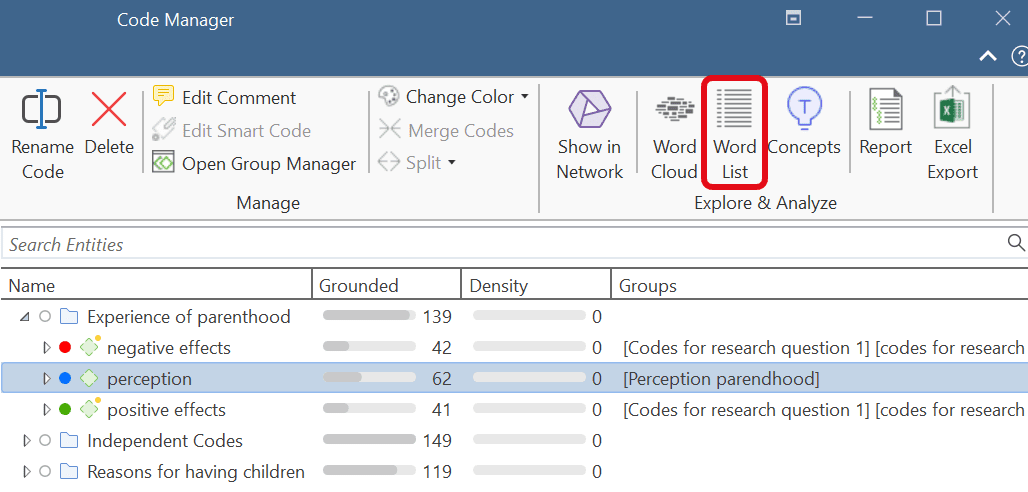
Other options are:
- to load a document first and select the Word List button in the ribbon.
- to open a document, quotation or code manager and select the Word List button in the ribbon.
- You can also access the Word List / Word Cloud via the Search & Code tab.
When you select to create a word list from codes, the word list shows the words of the quotations coded with the selected code(s).
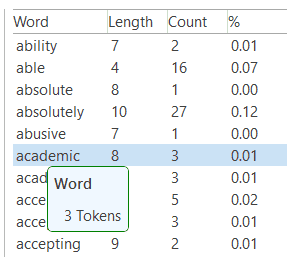
When you hoover over a word, its frequency is shown (= token / number of occurrences of a unique word).
Sorting Word Lists
Be default, word lists are sorted in alphabetic order by the first column 'Word'. You can also sort by any of the other columns by clicking on the column header.
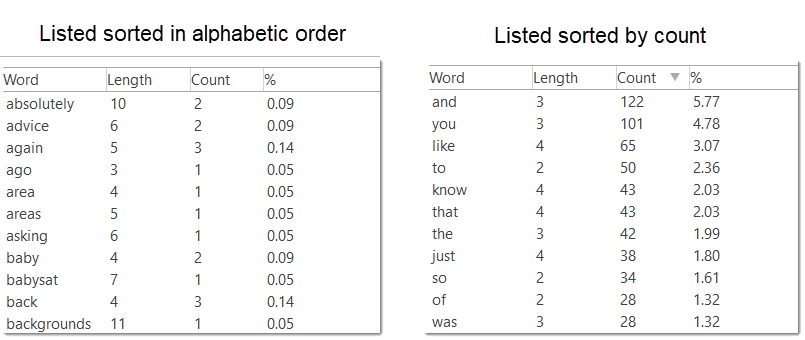
Setting the Scope
Once you created a word list, you see a side panel on the left. The check-boxes of the currently active entities are checked. You can check further entities or uncheck already activated entities.
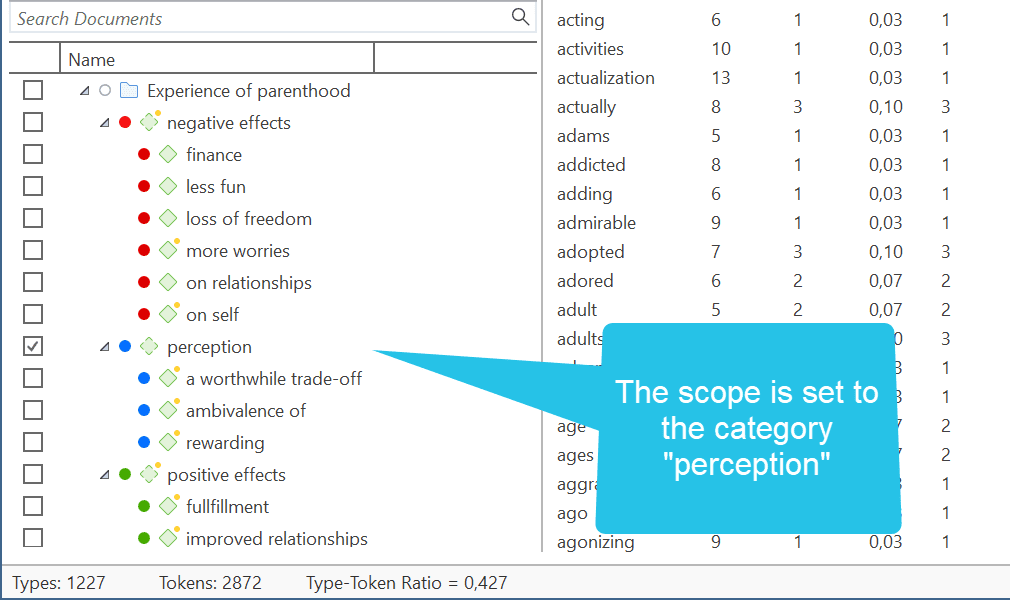
You can also change the entity type. Options are to change between:
- documents
- document groups
- codes
- code groups
- quotations
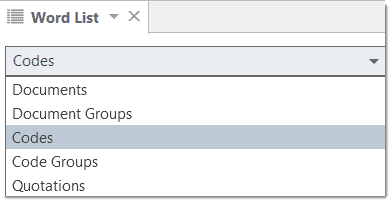
Another scope option is to enter a search term into the search field to look for a specific document, code, or quotations that only contain specific words.
Word List Ribbon

Show Scope: You can activate or deactivate the side panel that allows you to select the scope.
Show Details: Display of the word counts of each document if you have selected multiple documents.
Show Percent: Display the relative frequency of each word (word count relative to the total number of words in the document / all selected documents)
Threshold: My moving the slider from left to right, you can determine that for instance only words with a frequency of at least 10 should be displayed. The number of the left-hand side shows the lowest, the number on the right-hand side the highest occurring frequency.
Exclude: You can exclude single character words, numbers, hyphens and underscores.
Stop / Go Lists: To exclude particular words, you can select stop lists. If only certain words should be displayed, you can create a Go List. See the section on "Stop and Go Lists" below.
Excel: You can export the results of the word list as Excel table. There are limits in terms of how much data can be meaningfully processed, or moreover handled by and displayed in Excel. Assuming there are 2000 unique words in a document, and you process 100 documents, this results in an Excel table consisting of 200.000 cells.
Filter
-
Ignore Case: Select this option, if you do not want to count words separately depending on whether they contain upper or lower case letters.
-
Show Inflected Forms: The plural forms of nouns, the past tense, past participle, and present participle forms of verbs, and the comparative and superlative forms of adjectives and adverbs are known as inflected forms. If you activate this options, the word cloud only shows the basic form of the word, e.g. building but not buildings.
-
Parts of Speech: This options allows you filter your data by specific grammatical elements (parts of speech) like adjectives, nouns, numerals, pronouns, etc. Below you see an example that only shows nouns:
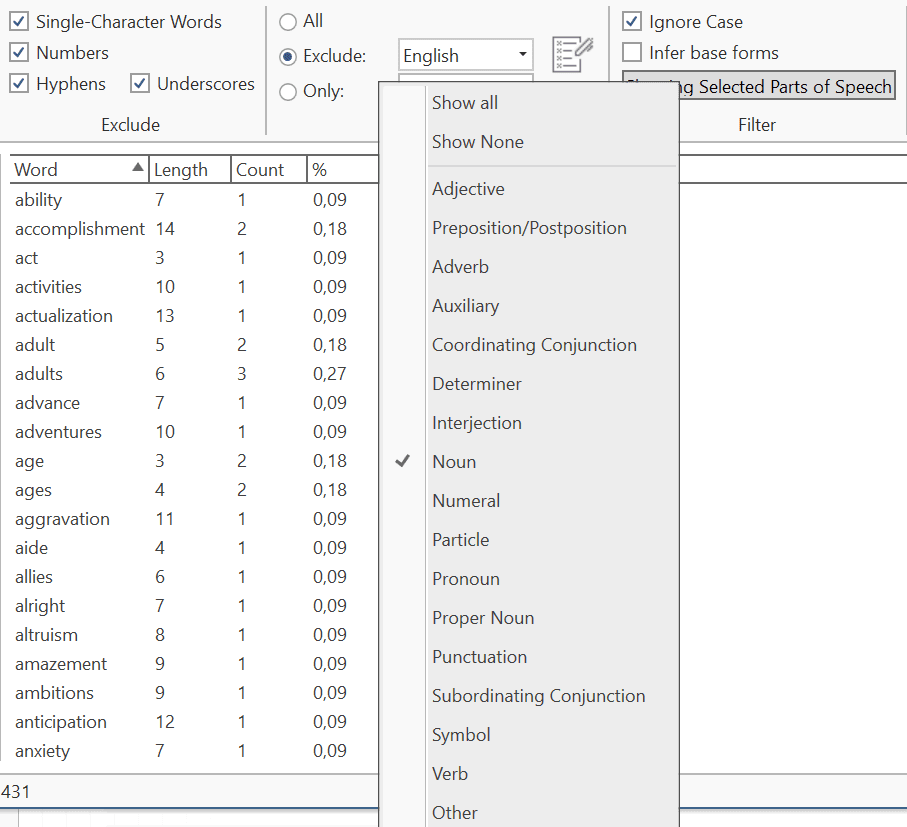
Filter Tab

Character Filter: In this section you can enter special characters that you do not want to be counted and displayed in the word cloud. By default, the following characters are excluded:
|"(){}[]<>/\#+-_%$&“”´`@^‘„
You can select whether these characters should generally be removed or only at word ends.
If you add or remove characters, or deactivate the restriction to word ends, you can click on the Reload button. This updates the word cloud.
Context Menu Options
When you right-click on a word, you have the following options:
- Remove from List
- Add to Stop List
- Copy to Clipboard
- Search in Context
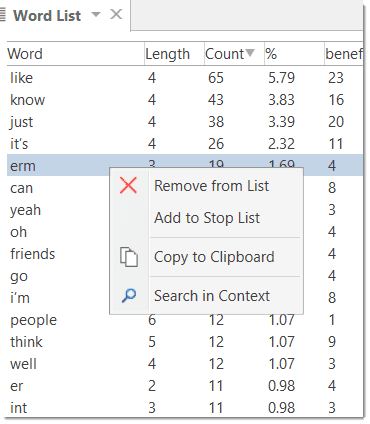
The option Remove from List temporarily removes the word from the list.
If you have selected a stop list (see below), you can add more words to it.
The Copy to Clipboard option is useful, if you want to run the auto coding tool based on some words in the word list. See Text Search.
The Search in Context option opens the Project Search and shows the selected word in its context.
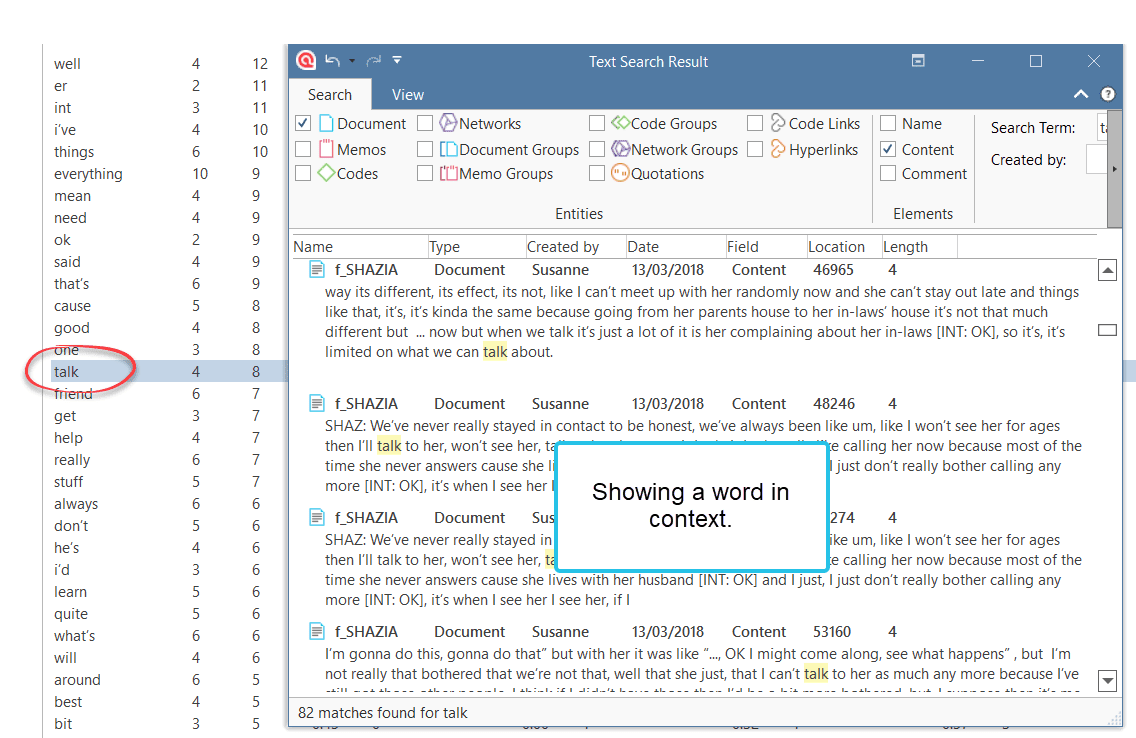
Stop and Go Lists
Working with Stop and Go Lists are explained in detail here.